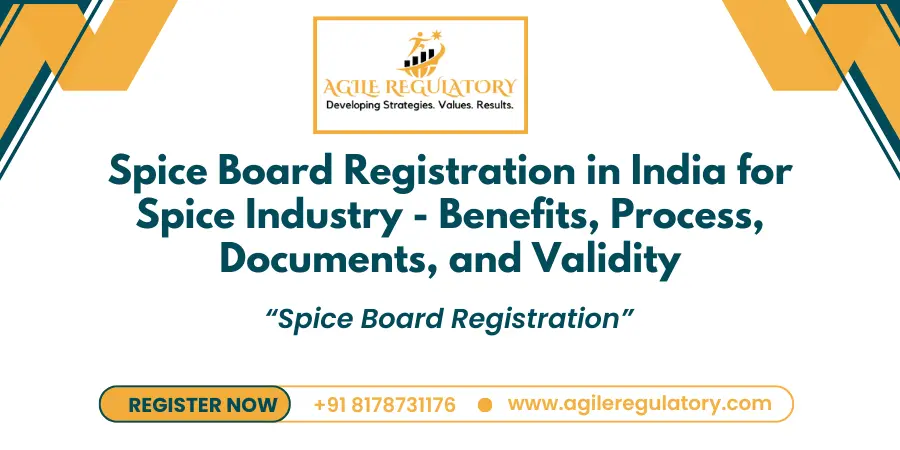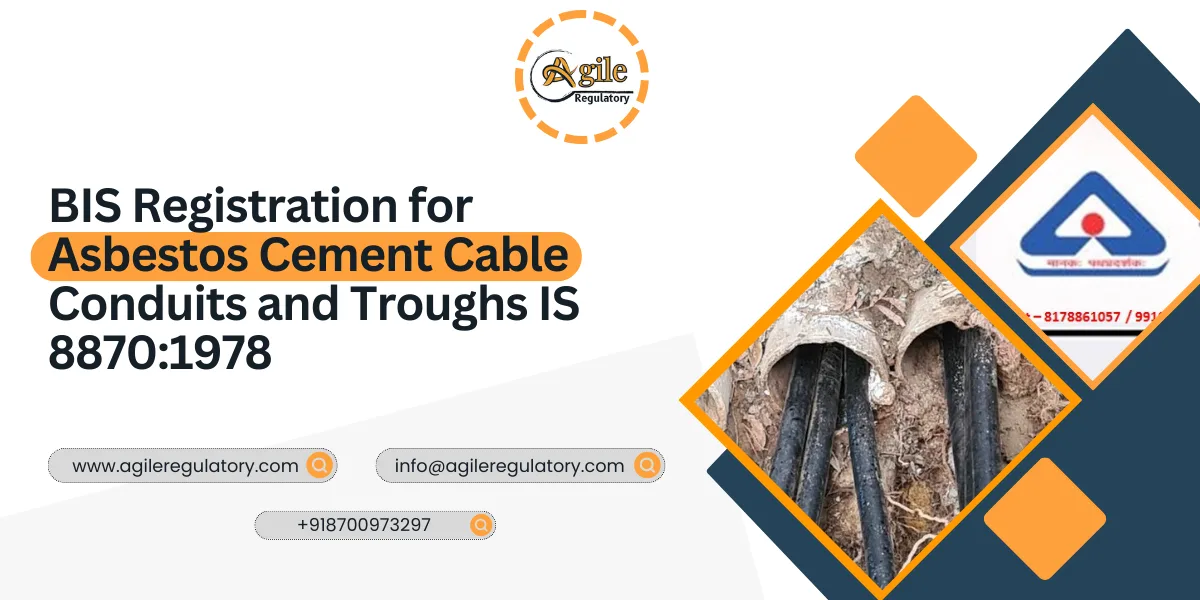
Get Instant Solution By an Expert Advisor
(4.8)


Spice Board Registration is a must for the exporters and importers of spices. To obtain the Spice Board Registration or the Certificate of Registration as Exporter of Spices (CRES), the applicant is required to visit the Spice Board office in India. This office is an agent between Indian exporting companies and international importers that promote Indian spices all over the globe.
Considering the fame of Indian spices, there are plenty of opportunities for profit by entering the export business. The minimal investment requirement is the most significant benefit of starting a spice business. This article discusses Spice Board Registration in India in detail decoding everything from process to validity.
The Spice Board of India was established in 1987 under the Spice Act 1986. This was due to the merger between the Erstwhile Cardamom Board (1968) and the Spice Export Promotion Council (1960).
It works under the government of India’s Ministry of Commerce and Industry. Its main role is to regulate and promote different kinds of spices.
The board is mandated to oversee both small and large cardamom and 52 other spices which were included in the list of Schedule of the Spice Board Act of 1986. The board is engaged in regulatory work by deciding how spices should be produced, marketed or dispatched to control quality in the sector.
Getting registration from the Spice Board of India proves extremely beneficial. Here are the primary advantages:
The registration process with the Spice Board of India is very simple. Just follow these steps:
Uploading documents is very important, even a slight mistake can lead to rejection. The list of documents you'll require is as follows:
The Spice Board Registration in India has the validity of three years in one shot. Businesses that want unbroken operation must renew their registration before their validity period ends. The certificate must be renewed during the final session at the end of each block period. Applicants must their application two months before the expiry of their current license. If the license is not renewed before the end of the block year you will need to file a new application with relevant fees and required documents.
Indian Spice Board registration is a crucial compliance factor for a legal enterprise working in the spice industry. Along with helping you maintain quality and regulatory standards, the license gives you the opportunity for market expansion. Implementation of this process and keeping the required documents ready helps the business get the certificate quickly and enjoy the many benefits that come with it.
If you want additional information about the registration procedure. Visit the official website of the Spice Board of India. To get assistance with Spice Board Registration in India, contact the Agile Regulatory team today!

 Vanshika Mathur
Vanshika Mathur
27 Feb, 2026

 Divya Saxena
Divya Saxena
27 Feb, 2026

 Nishi Chawla
Nishi Chawla
27 Feb, 2026

 Nishi Chawla
Nishi Chawla
27 Feb, 2026

 Vanshika Mathur
Vanshika Mathur
26 Feb, 2026

Get Instant Solution By an Expert Advisor
(4.8)
We simplify compliance through a proven 4-step process: Consultation, Documentation, Submission, and certification. From understanding requirements to getting final approvals, we deliver a smooth, timely, and fully compliant journey for your business.
What our customer says about us
Fantastic support from the team. Their expertise transformed our approach, driving remarkable outcomes. A must-have partner for businesses seeking effective consulting solutions. Highly recommended.

KTPL Instruments
Agile Regualtory delivers exceptional solutions. Their insightful guidance streamlined our processes and boosted profitability. Highly recommended for businesses seeking expert consulting services to thrive.

Justrack IOT
Impressed by Agile Regulatory's expertise. Their strategic insights and practical solutions have elevated our business operations. A reliable partner for effective consulting services. Highly recommended for growth-focused businesses.

Coaire Compressor
Extraordinary consulting services. Their insightful solutions and dedicated team reshaped our business, driving remarkable improvements. Highly recommend it for transformative results.

Easy Polymer
Incredible experience with Agile Regulatory. Their innovative strategies and expert advice revitalized our business model, resulting in impressive growth. Highly recommend their exceptional consulting services.

Tarus International
Top-tier consulting! offered strategic solutions that revolutionized our approach. Their deep expertise and personalized guidance made a significant impact on our success. Highly recommend their services.

Anchor Weighing
Agile Regulatory exceeded expectations! Their tailored solutions, expertise, and proactive approach led to remarkable results. Highly recommend for businesses seeking impactful and strategic guidance.

AM Capacitor
Outstanding service! delivered targeted solutions with professionalism and expertise. Their insights elevated our business strategies, resulting in noticeable growth. Highly recommended for exceptional consultation.

Imaxx Pro Aquistic
Leave a Reply
Your email address will not be published. Required fields are marked *